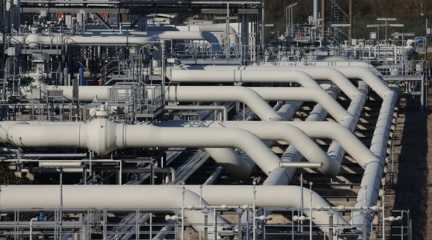
03 September 2022; MEMO: Morocco has stated that the Moroccan-Nigerian gas pipeline project will positively affect more than 340 million people.
This came during the symposium, A New Vision to Accelerate Production and Investment in the Context of Energy Transition, in the Senegalese capital, Dakar.
"This huge project that passes through 13 countries will have a direct positive impact on more than 340 million people," said the General Director of the National Office of Hydrocarbons & Mines (ONHYM) of Morocco Amina Benkhadra, according to the Moroccan News Agency.
Benkhadra shared: "All the countries that the pipeline will cross through will be included in the study and development of this project."
She considers that the project, which is currently still in the phase of detailed engineering studies: "Will contribute to the emergence of the integrated northwest African region."
Benkhadra added the line: "Also aims to create a competitive regional electricity market, exploit clean energy, and contribute to the industrial and economic development of all the countries it crosses."
The Moroccan official clarified this would be through: "The development of many sectors such as agriculture, industry and mining, in addition to exporting gas to Europe. The length of the gas pipeline will be about 5,660 kilometres, and its cost has been set. It will be established in several stages to respond to the increasing need of the countries through which it will cross and Europe, during the next 25 years."
In December 2016, Morocco and Nigeria agreed to implement the gas pipeline project linking the two countries during an official visit by King Mohammed VI of Morocco to Nigeria.
The pipeline will pass through Benin, Togo, Ghana, Ivory Coast, Liberia, Sierra Leone, Guinea, Guinea-Bissau, Gambia, Senegal and Mauritania.




